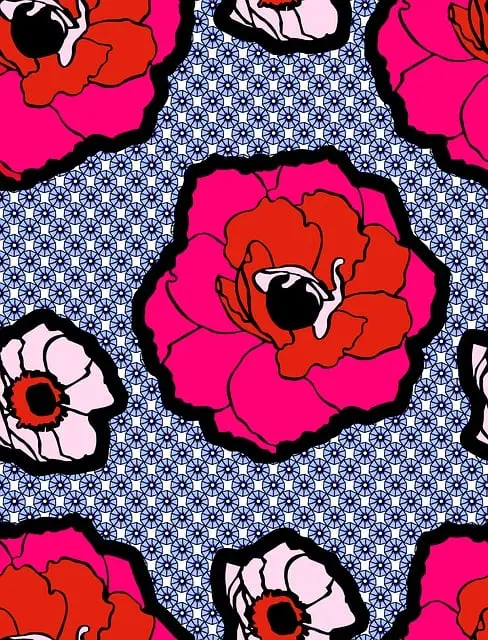Kava tea, derived from the South Pacific's Piper methysticum plant, is known for its calming effects due to its active compounds, kavalactones, which influence neurotransmitter pathways related to mood control, offering a natural alternative to pharmaceutical anxiolytics. Regular consumption of kava tea may alleviate anxiety without typical sedative side effects. Its potential is further enhanced when paired with delta 8 pain relief cream, which provides targeted analgesic benefits through interaction with the endocannabinoid system, offering a dual approach to managing both mental and physical discomfort in a holistic wellness context. Delta 8 THC, the active ingredient in these creams, is gaining recognition for its soothing properties without intense psychoactive effects. Users are advised to consult healthcare professionals before incorporating kava or delta 8 products into their health regimen to ensure proper usage and dosage for individual needs, considering the importance of personalized wellness strategies. This combination of kava's mental health benefits with delta 8's pain relief properties presents a compelling natural solution for those interested in alternative methods to enhance overall wellbeing.
Discover the tranquilizing power of kava tea, a natural elixir revered for its anxiety-relieving and relaxation benefits. This article delves into how kava tea can complement therapeutic practices, such as using delta 8 pain relief cream, to enhance overall wellness. We will explore the science behind kava’s anxiolytic properties, its role in stress reduction, and its potential in mental health treatment. Join us as we navigate the calming effects of this herbal drink and integrate it into your daily relaxation routine safely and effectively.
- Unlocking the Calming Effects of Kava Tea for Natural Relaxation
- Kava Tea's Role in Mitigating Anxiety and Stress
- The Science Behind Kava's Anxiolytic Properties
- Kava Tea as a Complementary Approach to Delta 8 Pain Relief Cream
- How to Safely Incorporate Kava Tea into Your Wellness Routine
- Exploring the Therapeutic Potential of Kava in Mental Health
Unlocking the Calming Effects of Kava Tea for Natural Relaxation

Kava tea, a traditional beverage originating from the Pacific Islands, has long been revered for its calming effects. The roots of the kava plant contain compounds known as kavalactones, which are believed to interact with neurotransmitters in the brain to produce a sense of well-being and relaxation. This natural relaxation is particularly appealing for individuals seeking alternatives to pharmaceutical options for stress relief. Regular consumption of kava tea can help mitigate symptoms associated with anxiety and promote a state of tranquility without the side effects often linked to conventional anxiolytics.
Incorporating kava tea into one’s wellness routine can be a beneficial addition, especially when complemented by other holistic practices. For those experiencing pain alongside anxiety, there is growing interest in the potential synergies between kava and delta 8 pain relief creams. Delta 8 THC, a minor cannabinoid found in hemp, has been gaining attention for its analgesic properties. While kava primarily targets the central nervous system to induce relaxation, delta 8 may provide targeted pain relief. The combination of these two natural substances could offer a dual approach to wellness, addressing both mental and physical discomfort. Users are advised to consult healthcare professionals before integrating kava tea or delta 8 products into their health regimen to ensure safety and proper dosing.
Kava Tea's Role in Mitigating Anxiety and Stress

Kava tea, a traditional beverage from the Pacific Islands, has garnered attention for its calming effects and potential role in mitigating anxiety and stress. The active compounds in kava root, known as kavalactones, have been studied for their anxiolytic properties, which can help alleviate feelings of nervousness and promote a state of relaxation without the sedative effects often associated with pharmaceutical anxiety medications. Regular consumption of kava tea may contribute to stress reduction by modulating neurotransmitter systems responsible for mood regulation.
Furthermore, kava tea’s efficacy in promoting relaxation extends beyond mental well-being; it also offers potential relief from physical discomfort. The analgesic properties of kava may complement other natural remedies, such as delta 8 pain relief cream, which is formulated to provide targeted relief for aches and pains. While delta 8 THC is distinct from its more psychoactive cousin CBD, it shares similar therapeutic benefits without the intense psychoactive effects. The synergy between kava’s relaxation effects and delta 8’s pain-relieving properties could offer a holistic approach to managing both anxiety and chronic pain, making it an attractive option for those seeking natural alternatives to maintain overall wellness.
The Science Behind Kava's Anxiolytic Properties

Kava, a traditional beverage from the Pacific Islands, has been scientifically scrutinized for its anxiolytic properties, offering a natural alternative to modern pharmacological treatments. The relaxation and potential anxiety relief provided by kava are attributed to its active constituents known as kavalactones. These compounds modulate neurotransmitter systems in the brain, particularly impacting the GABA-A receptors that regulate mood and anxiety levels. Studies have shown that the administration of kavalactones can enhance the binding efficiency of benzodiazepine sites on these receptors without inducing muscle relaxation or sedation typical of pharmaceutical benzodiazepines, suggesting a targeted effect on anxiety without broad central nervous system depression. This targeted action may contribute to its potential as an effective treatment for generalized anxiety disorder and other anxiety-related conditions.
Furthermore, the therapeutic benefits of kava are not limited to mental well-being. Its analgesic properties have also been recognized in various scientific investigations. Similar to delta 8 pain relief cream, which utilizes cannabinoids for topical application to alleviate discomfort and inflammation, kava’s efficacy in pain management has been supported by preclinical studies indicating its anti-inflammatory effects and analgesic activity. The integration of kava into wellness routines may offer a holistic approach to pain relief, with the added advantage of promoting mental calmness without the psychoactive effects often associated with other pain management options. This dual benefit makes it an attractive option for individuals seeking natural remedies for both anxiety and pain conditions.
Kava Tea as a Complementary Approach to Delta 8 Pain Relief Cream

Kava tea, steeped in traditional South Pacific cultures, has long been recognized for its relaxing properties. This herbal beverage is prepared from the roots of the Piper methysticum plant and is known for its distinct earthy flavor and ability to induce a state of calmness without drowsiness. As an adjunct to modern pain management practices, kava tea can complement the effects of delta 8 pain relief cream. Delta 8, a cannabinoid derivative from hemp, interacts with the body’s endocannabinoid system, offering targeted pain relief. The synergistic effect of kava tea alongside delta 8 cream may enhance overall relaxation and anxiety relief, potentially improving the quality of life for those managing chronic or acute pain conditions. Users often report a sense of tranquility that not only alleviates discomfort but also helps in coping with the psychological effects associated with persistent pain.
The integration of kava tea into a regimen using delta 8 pain relief cream presents a holistic approach to pain management. This combination may offer a broader spectrum of benefits, as kava’s anxiolytic and analgesic properties can work in tandem with the topical relief provided by the delta 8 cream. The non-psychoactive nature of both substances allows for daily use without impairment, making them suitable for individuals seeking alternative methods to manage pain and anxiety. It’s important for users to consult healthcare professionals before incorporating these substances into their wellness routine to ensure they are appropriate for their specific health needs and to determine the correct dosage.
How to Safely Incorporate Kava Tea into Your Wellness Routine

Including Kava tea in your wellness routine can be a beneficial step for relaxation and anxiety relief, provided it’s done responsibly. Kava, derived from the Piper methysticum plant, has been traditionally used in certain cultures for its calming properties. To safely incorporate Kava tea into your daily regimen, start with small doses to assess your tolerance, as individual sensitivity to Kava can vary. It’s advisable to follow the recommended serving size on the product label or as directed by a healthcare provider.
When integrating Kava into your routine, consider pairing it with complementary wellness practices such as mindfulness meditation or gentle yoga to enhance its effects. Additionally, be mindful of potential interactions with other substances, including over-the-counter or prescription medications. While Kava is generally safe for most individuals when consumed in moderation, it’s not suitable for everyone—particularly those with liver conditions or taking certain medications. Always consult with a healthcare professional before adding Kava to your wellness routine, especially if you have existing health concerns or are taking other treatments.
For those exploring additional natural relief options, products like Delta 8 pain relief cream may also be considered as part of a holistic approach to well-being. Delta 8 THC is a minor cannabinoid that interacts with the body’s endocannabinoid system and has been reported by some users to provide soothing properties without the intense psychoactive effects often associated with Delta 9 THC. As with any new supplement or treatment, it’s important to start with the manufacturer’s recommended use and adjust as needed based on your personal experience and guidance from a healthcare provider.
Exploring the Therapeutic Potential of Kava in Mental Health

Kava, a traditional beverage originating from the Pacific Islands, has garnered attention in the realm of herbal remedies for its therapeutic properties, particularly in mental health. The root of the Piper methysticum plant, from which kava is derived, contains compounds known as kavalactones, which have been the subject of numerous studies exploring their effects on the central nervous system. These compounds are believed to interact with gamma-aminobutyric acid (GABA) receptors in a manner that promotes relaxation and may alleviate symptoms of anxiety without the sedative effects associated with pharmaceutical anxiolytics. This unique mechanism offers a potential natural alternative for individuals seeking relief from anxiety, stress, and even certain types of pain.
The therapeutic potential of kava extends beyond its immediate impact on stress and anxiety. Emerging research suggests that regular consumption of kava may contribute to long-term mental health benefits. While it is not a panacea and should be used responsibly as part of a holistic approach to wellness, the herb’s ability to promote a state of calm and contentment could be beneficial in managing chronic stress, which is known to exacerbate various mental health conditions. Additionally, the role of kavalactones in modulating neurotransmitter activity opens up avenues for further investigation into their potential use in conjunction with other treatments, such as delta 8 pain relief cream, which leverages cannabinoids for therapeutic effects. This intersection of traditional herbal remedies and modern cannabinoid-based products highlights a growing interest in natural alternatives for pain and anxiety management.
Integrating kava tea into one’s wellness routine can offer a natural and effective avenue for relaxation and anxiety relief, as detailed throughout this exploration. The anxiolytic properties of kava are grounded in scientific evidence, providing a compelling alternative for those seeking to alleviate stress and enhance their mental well-being. When combined with therapeutic options like delta 8 pain relief cream, the synergistic effects can lead to a holistic approach to managing both pain and anxiety. As a complementary measure to conventional treatments, kava tea holds promise for individuals navigating the challenges of mental health. Embracing this traditional herbal drink responsibly as part of a balanced lifestyle can contribute significantly to one’s quest for tranquility and overall well-being.






